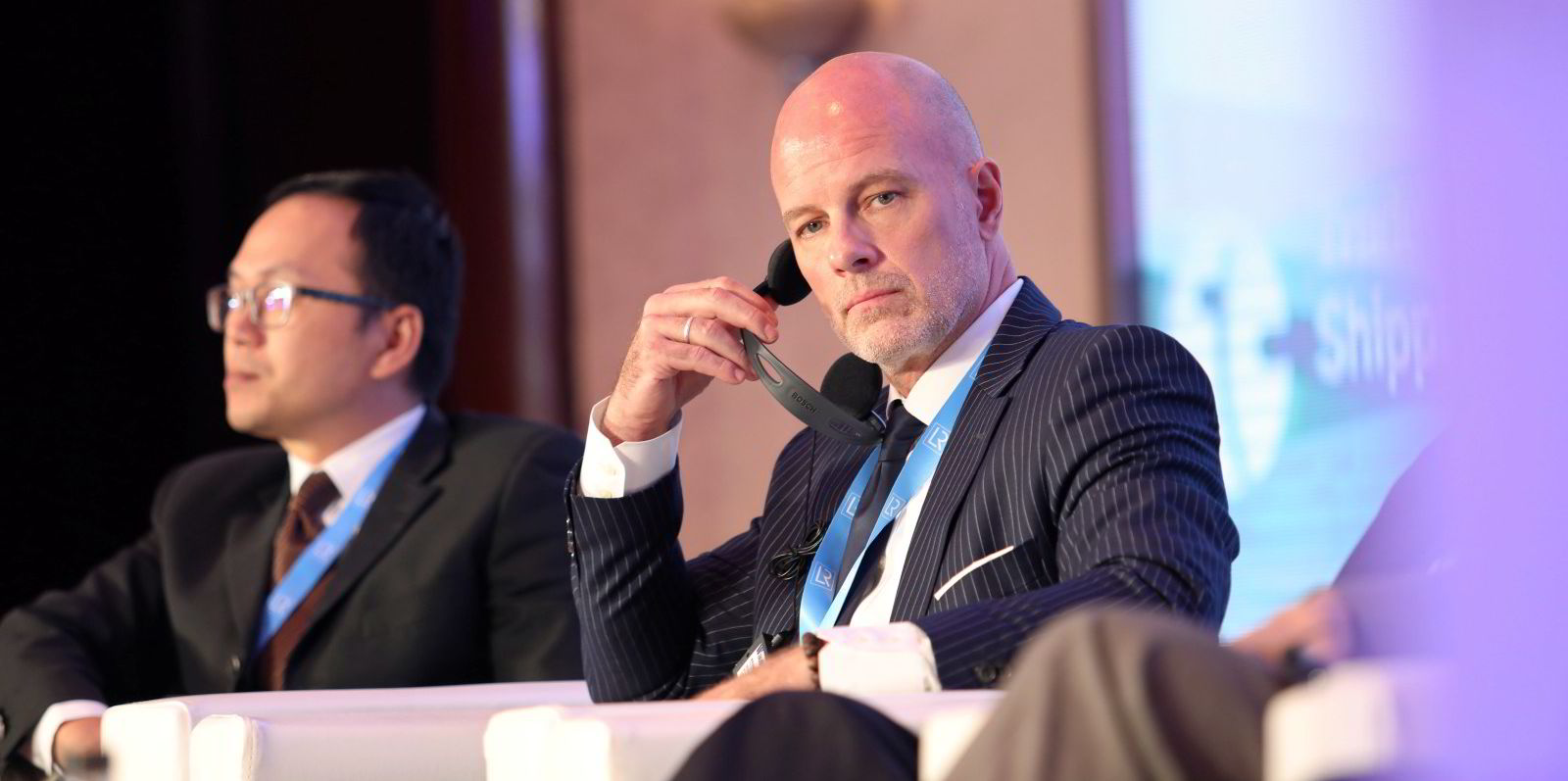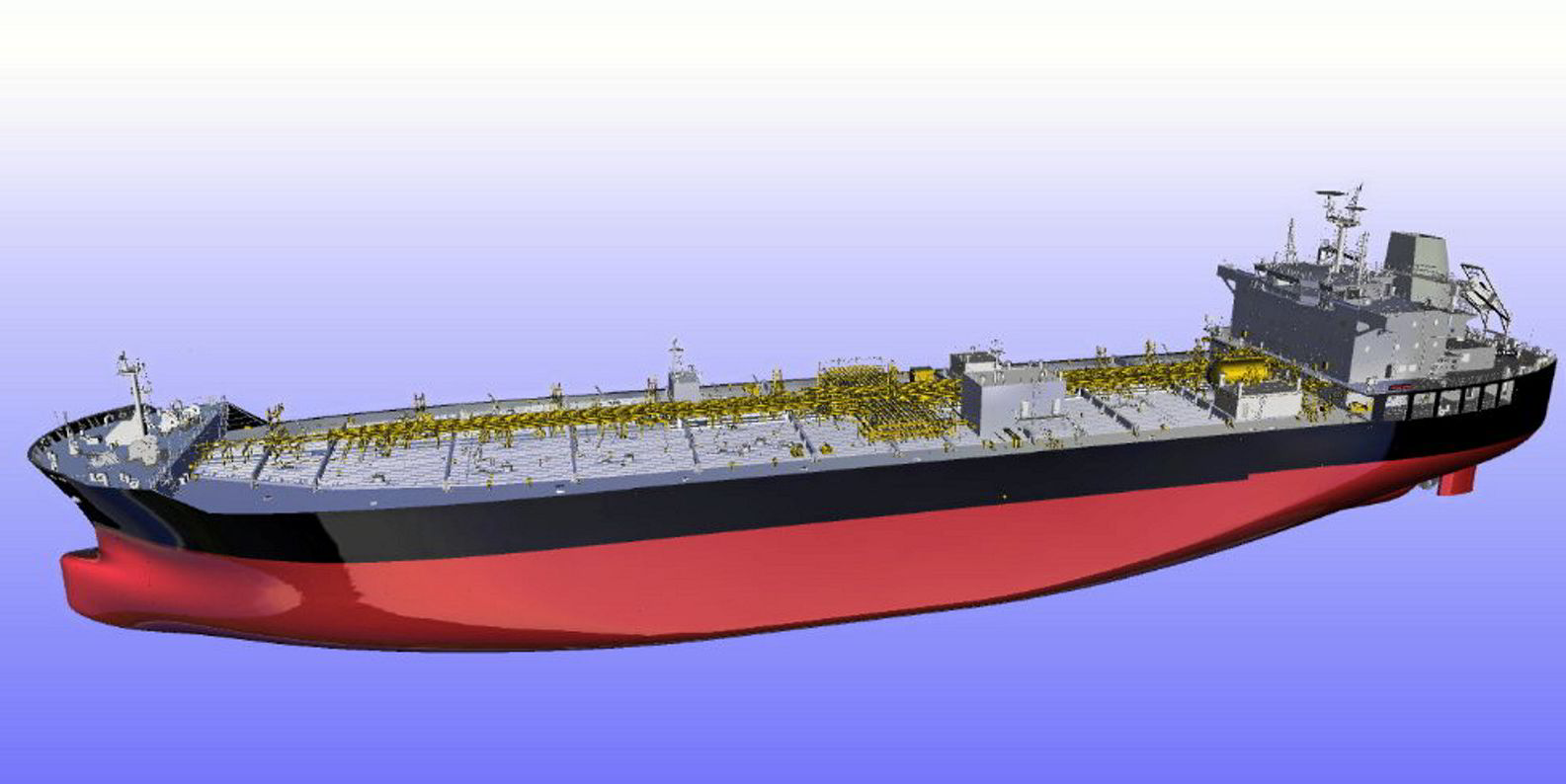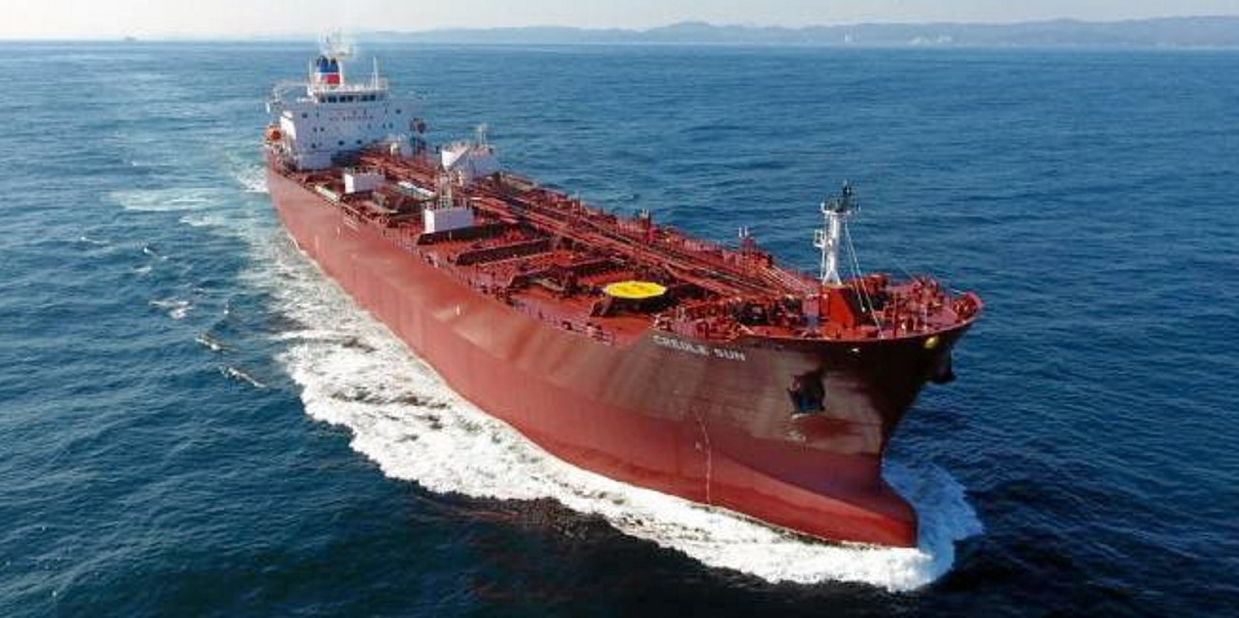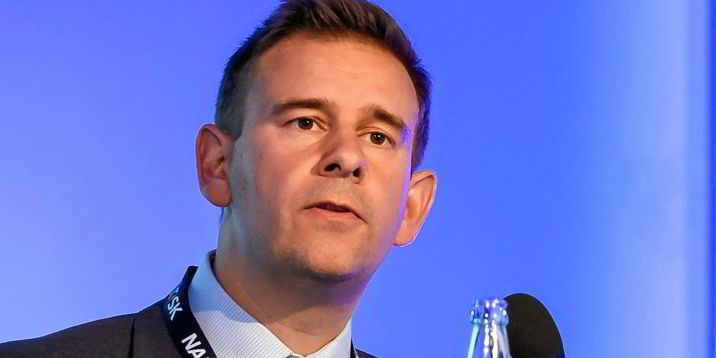A new design for a product tanker running on methanol regardless of its cargo has been approved by classification society DNV GL.
The ship, dubbed the low-emission advanced product tanker (LEAP), has been developed by South Korean shipbuilder Hyundai Mipo Dockyard (HMD), the Methanol Institute and MAN Energy Solutions.
Up to now, tankers carrying methanol have been the only ones designed to run on the sustainable fuel as well.
The LEAP vessel design involves a "minimal" loss of cargo capacity and low additional build costs, the companies said.
DNV GL provided technical advice and recommendations to help enhance the development.
The society has now granted approval in principle.
10% more expensive
The tanker will have a service speed of 14.5 knots and an effective range of 17,400 nautical miles (32,224 km) using methanol as the primary fuel.
This increases to 21,900 nautical miles using very low-sulphur fuel oil.
The cargo capacity is 54,000 cbm, just 300 cbm less than a diesel-only vessel.
The companies estimate the extra construction costs at 10%, compared to additional capex of 22% for LNG-dual fuel tankers.
Using methanol would produce CO2 emissions of 54.7 tonnes per day at service speed, compared to 64.7 tonnes for diesel.

The design uses two slop tanks of 2,600 cbm to store the methanol as fuel, positioned aft of the cargo tanks and protected by a cofferdam.
HMD said it had drawn on experience accumulated from building successful dual-fuel methanol carriers.
Ready to go?
"This design results in estimated cargo loss of 0.5% for a low construction premium, providing shipowners with the ability to build a low emissions vessel today," added YH Chung, head of the initial design department.
MAN provided input to the arrangement of the fuel supply and propulsion system, based on its ME-LGIM two-stroke methanol-capable main engine.
"Methanol ticks the boxes from an emissions point of view, with no sulphur, very low particulate matter and carbon dioxide emissions around 15% lower than conventional marine fuel oil," said Kjeld Aabo, MAN's head of marine and offshore sales for two and four stroke engines.
"To meet IMO NOx Tier III requirements, methanol can be blended with water which brings the ship into compliance without the need for expensive exhaust gas after treatment."
Straightforward and cost effective
Methanol Institute chief operating officer Chris Chatterton said: "This vessel design demonstrates that newbuild or conversion can be straightforward and cost effective and extends the trading life of the asset as it can use renewable methanol as more becomes available."
In May, the Danish Technological Institute revealed it had launched a study into how existing vessels could run on methanol with modifications to engines.
MAN Energy Solutions is involved in this work, along with chemicals specialist Nouryon Surface Chemistry, shipping technology company Alfa Laval, the Technical University of Denmark and bio-methanol producer Nordic Green.







